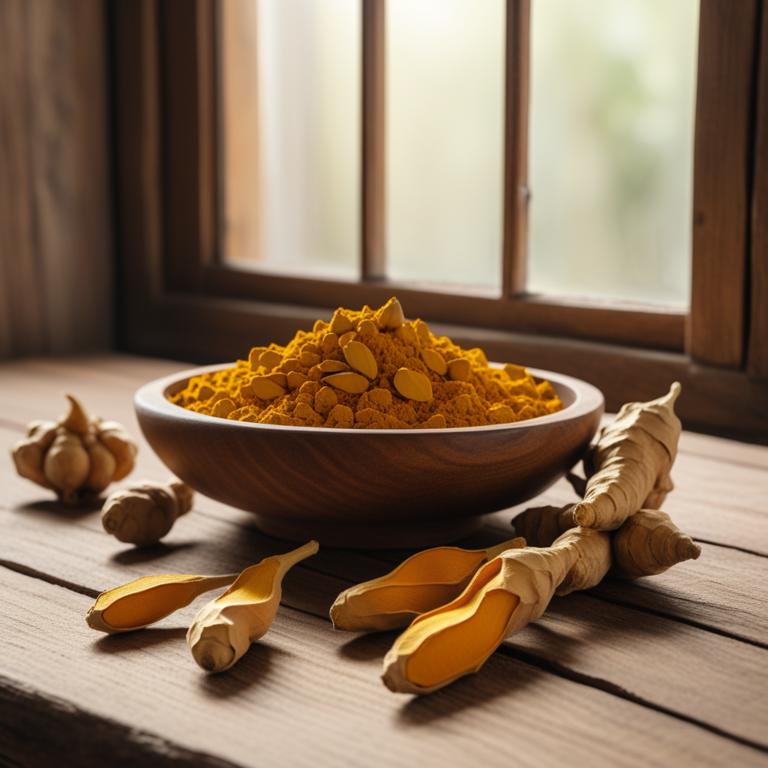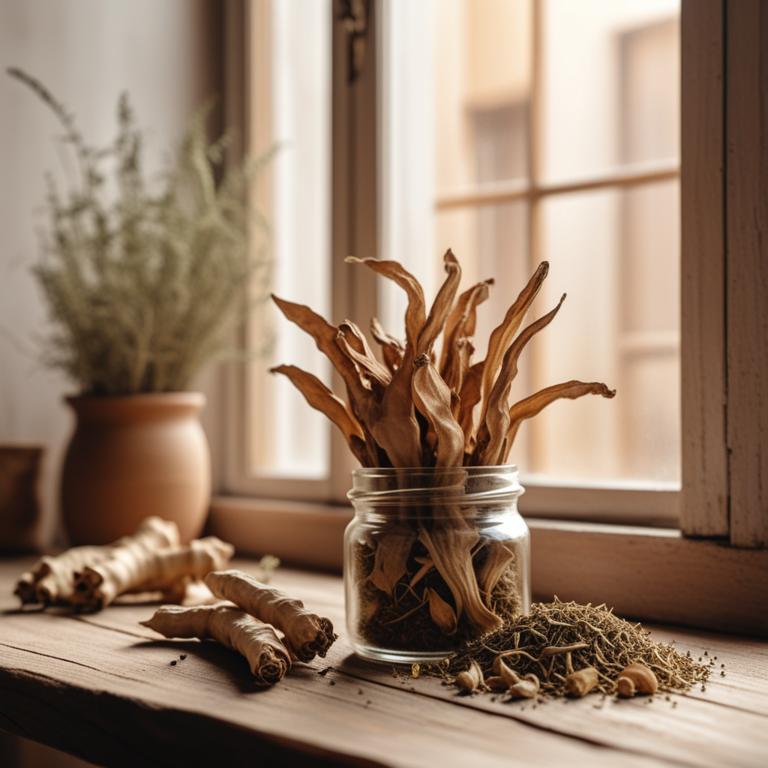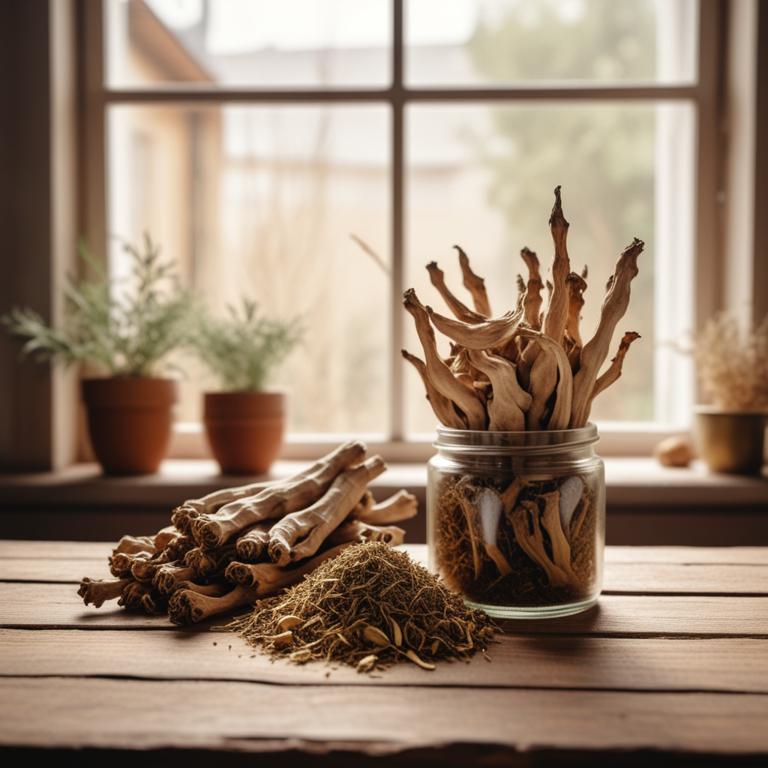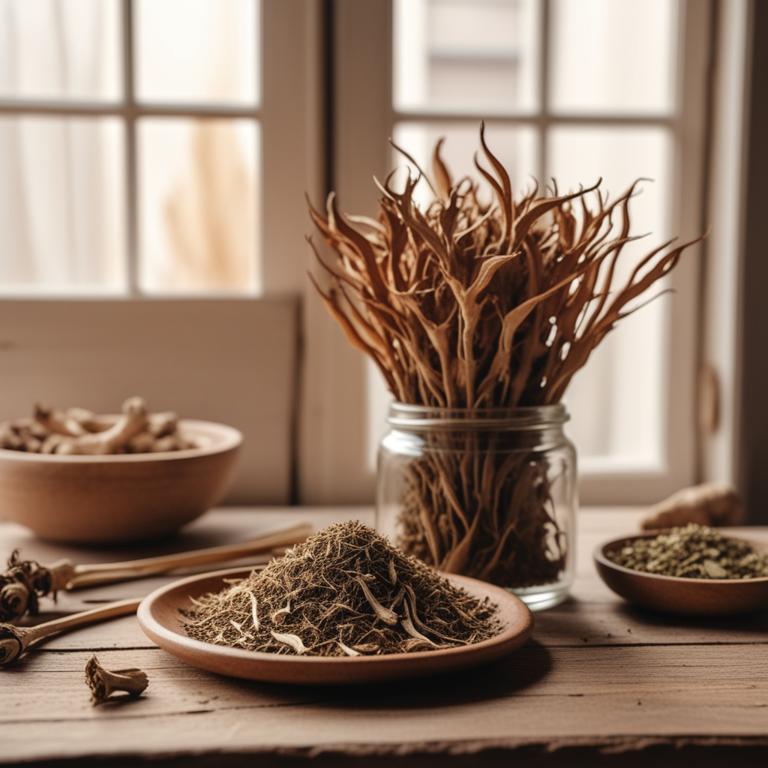Updated: Dec 1, 2024
Causes, Herbal Remedies, and Medicinal Preparations for Nasal Congestion

Nasal congestion, or a stuffy nose, is a common problem that affects many people.
When your nasal passages are blocked, it can make it hard to breathe, sleep, and even think clearly. You might feel tired, irritable, and struggle to concentrate. Nasal congestion is usually caused by a cold, allergies, or sinus infections. When your nasal passages swell, they produce extra mucus, which clogs your airways. Herbal remedies can help alleviate nasal congestion.
Some healing herbs, like eucalyptus and peppermint, have natural decongestant properties that can ease breathing. Echinacea and ginger are also known for their anti-inflammatory properties, which can help reduce swelling in the nasal passages. When used in teas, these herbs can help loosen mucus and open up your airways. You can make a soothing tea by combining eucalyptus, peppermint, and ginger in hot water. Drinking a cup of this tea can help clear your sinuses and relieve congestion. Some people also use eucalyptus oil in a humidifier to add moisture to the air and ease breathing.
Another option is to try a neti pot with a saline solution and some of these healing herbs to rinse your nasal passages and clear out mucus.
Table of Contents
- What are the underlying factors of nasal congestion?
- What are the perks of using herbs to alleviate nasal congestion?
- Which herbs are typically used to treat nasal congestion in medicine?
- What are the most popular herbal remedies for combating nasal congestion?
- What herbs should be avoided to prevent worsening of nasal congestion?
- FAQ
What are the underlying factors of nasal congestion?
The main causes of nasal congestion are several and varied, affecting people in different ways.
One common cause is allergies, where the body reacts to specific substances like pollen, dust, or pet dander, leading to an increased production of mucus and swelling in the nasal passages. This makes it hard to breathe and can cause discomfort.
The common cold is another major cause, where a viral infection causes inflammation in the nasal passages, producing excess mucus that blocks the airflow. Hay fever, also known as allergic rhinitis, is a seasonal condition where people react to pollen from trees, grass, or weeds, resulting in nasal congestion and other symptoms. Sinusitis, or inflammation of the sinuses, can also cause nasal congestion by blocking the sinuses and preventing mucus from draining properly.
Lastly, postnasal drip occurs when excess mucus runs down the back of the throat, causing irritation and discomfort, and can be a result of allergies, the common cold, or sinusitis.
What are the perks of using herbs to alleviate nasal congestion?
Using herbs for nasal congestion can be a natural and effective way to relieve stuffiness and congestion.
One of the main benefits is that they can help to open up airways and improve breathing, which can be especially helpful when you're feeling congested and can't catch your breath. These herbs often have anti-inflammatory properties, which can help to reduce swelling and ease pressure in the nasal passages, making it easier to breathe.
They can also help to loosen and clear mucus, which can be trapped in the nasal passages and contribute to congestion. Additionally, many herbs have natural decongestant properties, which can help to reduce swelling and open up airways, providing quick relief from nasal congestion. By using herbs, you can also avoid some of the side effects that come with over-the-counter medications, such as drowsiness and dryness.
Furthermore, many herbs can be used in teas, steams, or as inhalants, making them easy to incorporate into your daily routine.
Which herbs are typically used to treat nasal congestion in medicine?

Herbs can be a great way to help with nasal congestion.
One herb that's often used for this is Eucalyptus globulus, also known as eucalyptus oil. It has a compound called eucalyptol that helps break down mucus, making it easier to breathe. You can find eucalyptus oil in many products, like inhalers and lotions. Another herb that's often used is Thymus vulgaris, or thyme. Thyme has antibacterial properties that can help fight off infections that might be causing your congestion. This can be especially helpful if you have a cold or sinus infection. Zingiber officinale, or ginger, is also a common herb used to help with congestion.
Ginger has anti-inflammatory properties that can help reduce swelling in your sinuses, making it easier to breathe. You can find ginger in many forms, like tea or supplements. Rosmarinus officinalis, or rosemary, is another herb that might help with congestion. Rosemary has compounds that can help break down mucus and open up your airways. However, be careful not to use too much rosemary, as it can be overpowering. Mentha x piperita, or peppermint, is also sometimes used to help with congestion. Peppermint has a compound called menthol that can help thin out mucus, making it easier to breathe.
However, some people might find that peppermint irritates their sinuses, so use it with caution.
What are the most popular herbal remedies for combating nasal congestion?

Herbal preparations can be really helpful in relieving nasal congestion.
A decoction is a strong liquid made by boiling herbs in water, which can help loosen mucus and open up airways. This makes it easier to breathe. For example, a decoction of peppermint and eucalyptus can help ease congestion and clear your sinuses. A tincture is a concentrated liquid made from herbs that have been soaked in a solvent like alcohol or glycerin. You can take it by mouth or add it to a warm bath to inhale the vapors. Tinctures like eucalyptus and thyme can help reduce inflammation and ease congestion in the nasal passages.
An infusion is similar to a tea, but it's made with a smaller amount of herbs. It's a great way to enjoy the flavor and benefits of herbs without being too overpowering. Infusions like ginger and licorice root can help soothe a sore throat and ease congestion. A salve is a topical cream or ointment made from herbs that can be applied directly to the nasal passages. Salves like eucalyptus and menthol can help open up airways and ease congestion. A gargle is a liquid solution made from herbs that you can swish around in your mouth to help soothe a sore throat.
Gargles like sage and slippery elm can help reduce inflammation and ease congestion in the nasal passages.
Additional Resources:
What herbs should be avoided to prevent worsening of nasal congestion?
If you have nasal congestion, it's best to be cautious with certain herbs.
Cinnamomum verum, also known as true cinnamon, can make congestion worse as it dries out the mucus. This is because it has a drying effect on the body. Salvia officinalis, or common sage, can also irritate your nasal passages and make congestion more uncomfortable.
Foeniculum vulgare, or fennel, may seem like it could help due to its expectorant properties, but its oil can actually increase mucus production, making congestion worse in the long run. Lavandula angustifolia, or English lavender, is known for its calming effects, but its essential oil can be too intense for congested nasal passages, causing further irritation. Piper nigrum, or black pepper, contains a compound called piperine, which can increase blood flow and heart rate, potentially making congestion symptoms worse.
It's essential to consider these effects before using these herbs to avoid worsening your nasal congestion.
FAQ
Are there any specific herbs that can prevent nasal congestion?
Eucalyptus and peppermint herbs have natural decongestant properties that may help relieve nasal congestion.
Their oils can be inhaled or added to warm water to make a soothing steam treatment.
Some people also use thyme and rosemary to help open up their airways, but it's worth noting that these herbs might not work for everyone.
Is it safe to use herbal remedies for nasal congestion during pregnancy?
When using herbal remedies for nasal congestion during pregnancy, it's essential to be cautious.
Some herbs like peppermint and eucalyptus are considered safe, but others like pennyroyal and sage may not be. Always check the ingredients and talk to your partner about what you're taking.
It's also a good idea to choose products with clear labels and minimal added ingredients.
Are there any herbs that can reduce the frequency of nasal congestion?
Some herbs like eucalyptus and peppermint have natural oils that can help ease nasal congestion.
When inhaled, these oils can loosen mucus and reduce inflammation.
Eucalyptus is often found in decongestant products, while peppermint can be enjoyed as a tea or added to a warm bath for a soothing effect.
Related Articles

Bronchitis: The Causes, Medicinal Herbs, and Homeopathic Preparations

Understanding Coughing Fits: Causes, Medicinal Herbs, and Herbal Preparations for Relief

Chest Congestion: Understanding the Causes and Herbal Solutions

Emphysema Causes, Symptoms, and Herbal Relief Options

Understanding and Treating Dry Cough with Medicinal Herbs and Herbal Preparations






